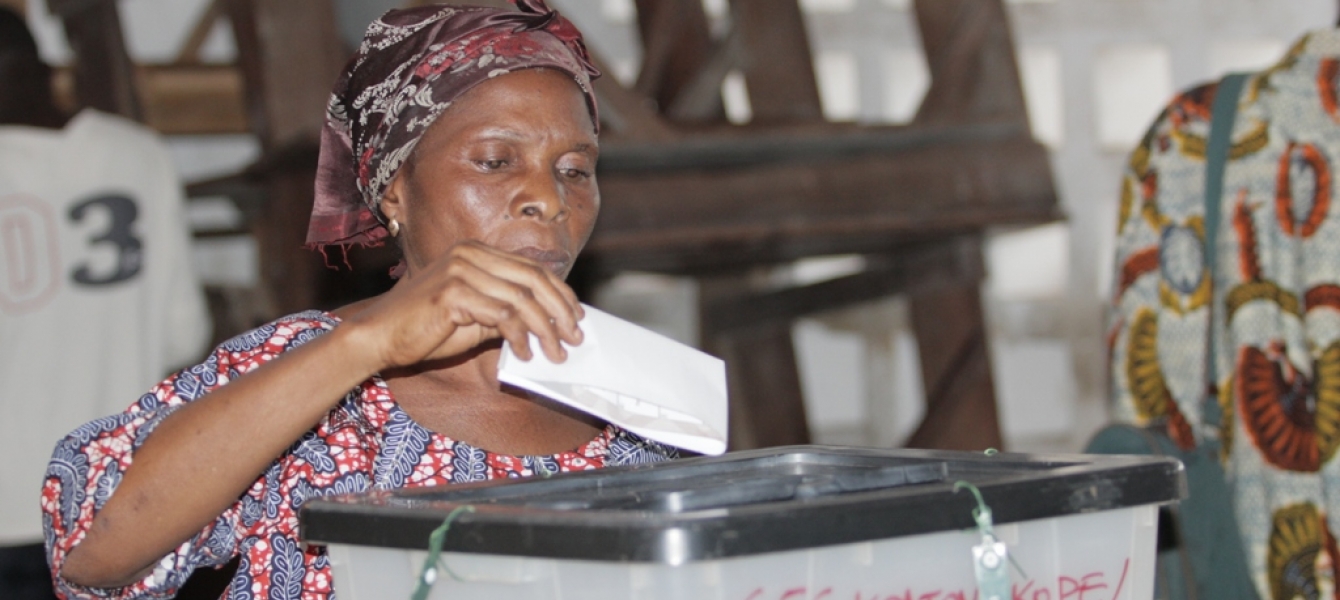Independent election network, Zimbabwe Election Support Network (Zesn) recently held a virtual meeting to discuss the results management systems and their impact on electoral integrity.
Electoral integrity has to do with the standards governing the appropriate conduct of election to which they represent a critical aspect of the electoral process.
The virtual discussion allowed the panel to share their views and opinions on the subject.
Elections expert Boniface Chibwana who was part of the panel said that the results management systems are about counting of votes, tabulating and announcement of election results.
“Results management can make or break an election,” Boniface said during the virtual meeting.
Linda Kunje who was also part on the discussants, mentioned an incident that happened in Malawi, 2019.
“There were allegations against the Elections Management Body (EMB) in Malawi that the type of correction fluid used was never provided by the EMB.
“There was no attempted rigging.
“In 2020, threats to the Presiding Officers by the EMB against the use of correction fluid not provided by the EMB worked,” Kunje said.
Norton legislator Temba Mliswa expressed the view that candidates need to create their parallel structures to safeguard the vote, for example, escorting vehicles that transmit results in-between stages.
“At every level: polling station, constituency, provincial, and national, candidates/parties should be represented,” Mliswa said.
Also, part of the panel was elections, democracy and governance practitioner Taona Mwanyisa who expressed that counting being manual, delays in announcement of results raises suspicions.
Mwanyisa described an incident that took place in Zambia recently during the presidential election.
“Lives were lost in Zambia as a result of rigging suspicions, including a case where one member of the incumbent party was suspected to have pre-marked ballots.
“Patriotic Agents (PF) agents signed results returns, the electoral commission never suspended voting in any polling station, proving the allegation to be wrong,” Mwanyisa said further.
Mwanyisa furthermore mentioned that Party agents intervened in Zambia to address anomalies in the announcement of results as it was happening, based on the results they had been given.
“For Councillors results are declared at Ward level, for Parliament & the President they are declared at constituency level.
“Then they are transmitted electronically to the national tally centre.
“At all levels there are agents and observers.
“There was no evidence that PF agents in Zambia were chased away from polling stations as alleged by the then incumbent. PF agents signed results returns, the electoral commission never suspended voting in any polling station, proving the allegation to be wrong,” Manyisa added further.
Mliswa was of the view that introducing the electronic results management centre would boost confidence in stakeholders but because elections are a political game there are court challenges nevertheless.
“Results are a problem even in developed democracies.
“Electronic transmission of results helps in striking the needed balance between speed and the accuracy of results.
“All polling station results could also be published on the ZEC website. In 2018 the ZEC website was down and there were allegations of hacking which didn’t help,” Mliswa said.
There is also the situation with rural areas which will not be able to electronically transmit results.
“The problem in Zimbabwe is not about RMS, it is about pre-election malpractices for instance the statement by ZANU-PF acting Commissar, Chinamasa, about the link between ZANU-PF and the army.
“It intimidates the electorate and has an effect on results,” Mliswa said further.
Chibwana said that election observers help bring trust in electoral processes.
“It is important to build the capacity of observers.
“People should be made to understand the Parallel Vote Tabulation (PVT); what it does and what it doesn’t do.
“PVT has been misunderstood and even abused because it is a sample, much that happens elsewhere is missed, for example in one election, results of a certain candidate were found in a dustbin,” Chibwana said.
Barbara Nyangairi who was also part of the virtual discussion mentioned that PVT was critical as it quickly gives an idea of election results at all polling stations, through projections.
“One major challenge has been the lack of understanding of the methodology.
“The PVT is efficient and it helps where there is mistrust in the EMB.
“Electronic results management systems should be introduced gradually, initially being used without abandoning the manual system; it takes time to strengthen democracy,” Nyangairi said.
Chibwana suggested that decentralising election results management would be critical.
“The PVT has to be widely understood so as to build trust. There is also need for professional security agents. There is need for the media to report accurately,” Chibwana added.
Former member of Namibia’s electoral commission Victor Tonchi mentioned the frustrations that come with delays in results announcement.
“Some of the delays are a result of flawed laws and too much paper work.
“There is need for reform,” Tonchi said.
Zambian based electoral and governance expert McDonald Chipenzi highlighted that in Zambia, rallies and roadshows, etc, were banned but social media played a big role in engaging youth.
“Maybe the youth thought change would solve their problems, for example, unemployment,” Chipenzi said.
The results management systems play a critical role in the outcome of the electoral process and reforms should be made to safeguard its integrity.




